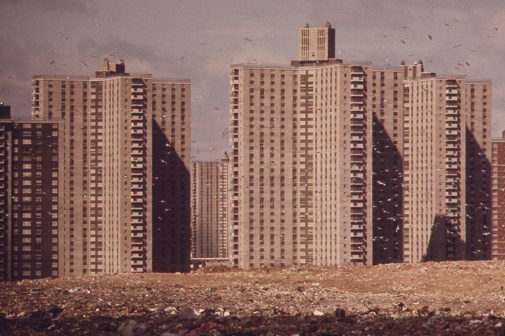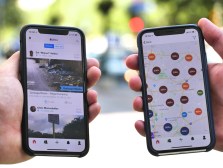‘Uber for grease’ could alleviate some of America’s sewer repair bill

Hidden away in more than a million miles of pipes under its streets, America has a big greasy problem. The fat and oil that slurps its way from kitchens into sewers causes wear and tear on infrastructure that costs local government hundreds of billions of dollars .
The average U.S. sewer pipe is approaching 45 years old, and it’s being stressed by overflowing grease traps that go forgotten in thousands of restaurants across the country. Whatever the traps don’t collect typically goes directly into the sewer.
“It’s the biggest problem nobody knows about,” says Luke Ismert, the founder of a startup called Snorkel. Ismert’s idea is to put an app into the hands of grease trap contractors — the brave men and women who empty the malodorous tubs — and have them collect data that allows restaurants to make sure they’re emptying the traps on time. The information also could equip governments to plan upgrades and repairs.
Ismert, who comes from a family of plumbers and plumbing manufacturers, says he’s cleaned grease traps, or “grease interceptors,” himself. While older restaurants often have traps inside their buildings that hold 25 to 75 gallons, newer construction tends to have larger traps installed outside the building — usually with a 1,000-gallon capacity.
“It’s the worst smell you’ve ever smelled,” Ismert said. “There’s nothing worse. Bathroom odor doesn’t even hold a candle. A grease trap with the cover off is an unforgettable smell. It’s rotting flesh, basically. It’s decomposing animal.”
The odor might be disgusting, but more importantly, it’s expensive for cities when restaurant grease traps aren’t changed out and they overflow into the sewer.
“It clogs up the sewer pipes and that leads to loss in sewer line capacity, and it leads to sewer overflows — raw sewage getting puked into the street,” Ismert said.
Ismert explained that restaurants aren’t penalized for allowing grease overflows so they don’t often see the logic in paying more to have them cleaned more often.
“We think that by showing clearly just how much grease is bypassing to the sewer they will be a more willing partner in handling the problem,” he said.
Ismert’s app may not spearhead a new career path in the gig economy, but he says the vision for his company most closely resembles that of a certain transportation company: It’s Uber for grease.
“With that collection of data, we can present a dashboard to the city,” that allows for analysis of where the biggest problem areas are, Ismert explained. “Right now they do it with old-fashioned pen-and-paper and the information is very clunky and it’s not being trapped anywhere.”
As contractors complete their work, they would fill out a form in the app that includes information like how much grease was pumped out, whether the trap was under-filled or overfilled, whether the trap is in disrepair, and for grease aficionados, more detailed information like the amount of floating grease and the amount of sediment layer.
An option that allows restaurants to rate contractors would make it easier for good businesses to get more work and make it easier for restaurants to find quality help, Ismert said. And most importantly, he said, both the data and the grease is intercepted, to the benefit of the city.
“Everyone else is trying to do this with a gizmo,” Ismert said. “The problem with that is the environment inside one of these grease traps is very corrosive and very nasty. It’s hot, it’s acidic, and it gums up anything that’s not super durable real quick. We’re using boots on the street, arming them with an app and crowdsourcing the data and then presenting that data in a super actionable way.”
Snorkel is a member of this year’s class of startups in the Innovation Partnership Program in Kansas City, Missouri. Ismert will present his technology to the city at a demonstration day on Oct. 8 and if approved, will enter a partnership that will afford him the chance to test the app with local businesses.





